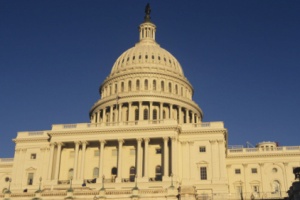 A proposed “carbon tax” would have a “devastating” impact on manufacturing and jobs, according to the National Association of Manufacturers (NAM), responding to climate-change legislation introduced recently in the Senate.
A proposed “carbon tax” would have a “devastating” impact on manufacturing and jobs, according to the National Association of Manufacturers (NAM), responding to climate-change legislation introduced recently in the Senate.
The bill by Senators Barbara Boxer (D-California) and Bernie Sanders (I-Vermont) includes a Climate Protection Act which would impose a fee on carbon pollution emissions by the fewer than 3,000 entities that account for 85% of the nation's greenhouse gas (GHG) emissions. For the first year, the fee would be $20 per ton of carbon dioxide content of the carbon polluting substance. The fee would rise by 5.6% per year for the next ten years.
The NAM released a study showing that levying such a tax would impact millions of jobs and result in higher prices for natural gas, electricity, gasoline and other energy commodities.
“Manufacturing output in energy-intensive sectors could drop by as much as 15.0 percent and in non-energy-intensive sectors by as much as 7.7 percent,” according to NAM.
Said NAM President and CEO Jay Timmons; “As consumers of one-third of our nation’s energy supply, manufacturers and our employees will struggle with higher energy prices. A carbon tax will severely harm our ability to compete with other nations.”
Other key findings of the report include the following:
- A carbon tax would lead to lower real wage rates because companies would have higher costs and lower labor productivity. Over time, workers’ incomes could decline relative to baseline levels by as much as 8.5 percent.
- Between 1.3 million and 1.5 million jobs could be lost in 2013 and between 3.8 million and 21 million by 2053.
- A carbon tax would have a negative effect on consumption, investment and jobs, resulting in lower federal revenue from taxes on capital and labor.
- The increased costs of coal, natural gas and petroleum products due to a carbon tax would ripple throughout the economy, resulting in higher production costs and less spending on non-energy goods.
The study looks at two carbon tax scenarios: one levied at $20 per ton increasing at 4 percent and the other designed to reduce carbon dioxide (CO2) emissions by 80 percent. Both cases would have a negative impact on the economy. Please click on the links for the executive summary and full report and for information on 10 hard hit states.
Click here to read ISHN.com's story on the climate change legislation.



